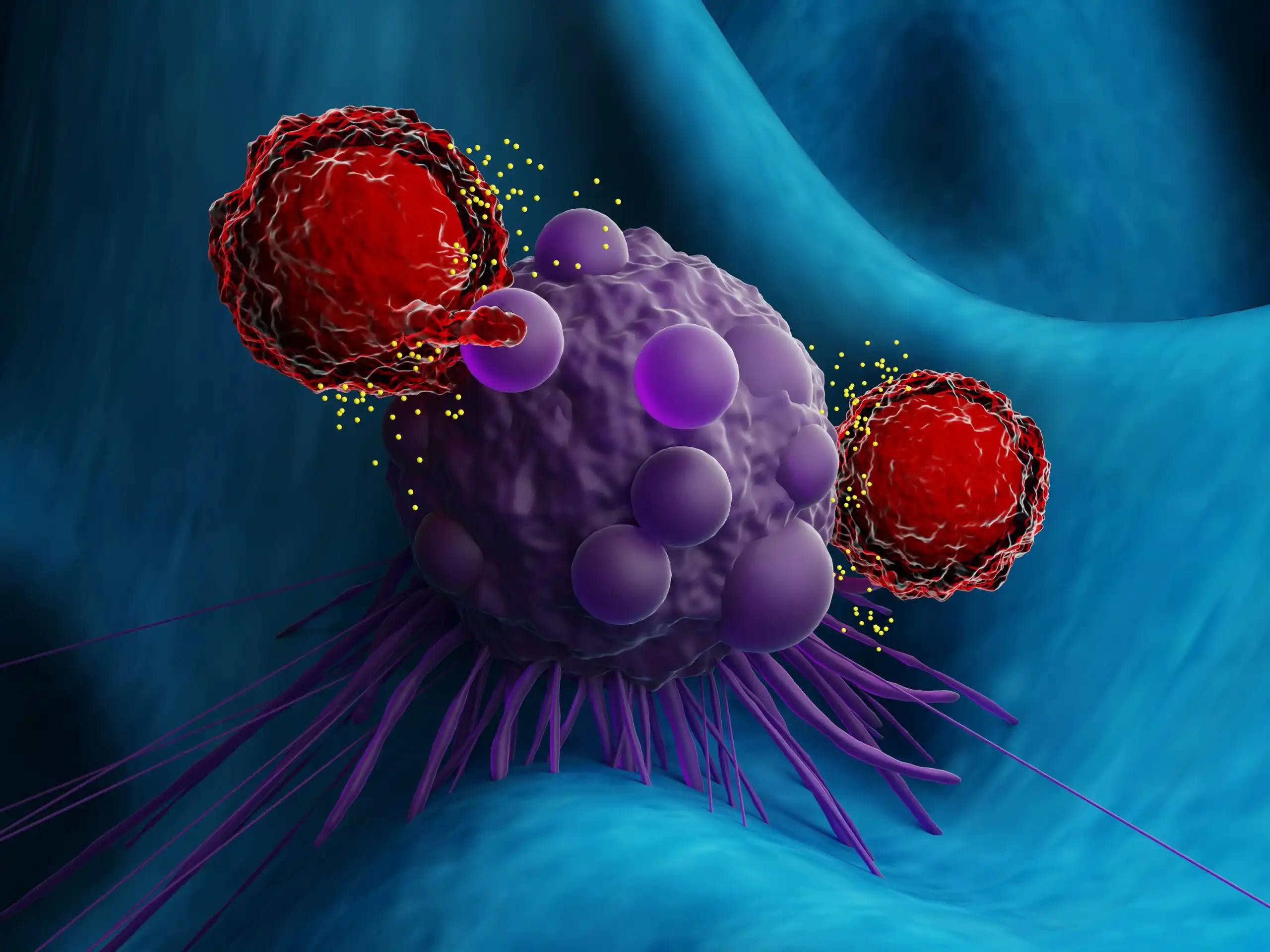KEY TAKEAWAYS
- The SWOG S2000 is a phase II trial that aimed to compare the efficacy of a triplet regimen of BRAF/MEK inhibitors with PD-1 therapy versus ipilimumab + nivolumab.
- The primary objective is to compare the two study arms’ PFS per (RECIST 1.1). Secondary objectives include OS, toxicity profile, objective tumor response, and intracranial response.
- The study can detect a clinically meaningful difference in 6-month PFS between the two treatment groups.
Anti-PD-1 and anti-CTLA4 immunotherapies are ineffective in treating symptomatic melanoma brain metastases (MBM). The combination of anti-PD-1/PD-L1 therapy with BRAF/MEK inhibitors has shown some promise, with a 6-month PFS of 57% in the symptomatic brain met cohort of the TRICOTEL study.
Researchers compared the efficacy of a triplet regimen of BRAF/MEK inhibitors with PD-1 therapy(encorafenib 450 mg qday + binimetinib 30 mg BID + nivolumab 480 mg IV q4 weeks) versus(ipilimumab 3 mg/kg + nivolumab 1 mg/kg q3 weeks) in patients with symptomatic BRAF-mutant melanoma brain metastases (MBM).
Eligible patients had to be at least 18, with an ECOG performance status of 0-2. They have received prior neoadjuvant or adjuvant anti-PD-1, CTLA-4, or BRAF/MEK inhibitors. Patients were also permitted to be on steroids up to 8 mg of dexamethasone/day (or equivalent), have leptomeningeal spread, and have received prior local therapy (radiation or surgery) for brain metastases, as long as they had at least one measurable, progressing brain metastasis that was at least 0.5 cm in size.
The study’s primary objective is to compare progression-free survival (PFS) per (RECIST 1.1) between the two treatment groups. Secondary objectives include overall survival (OS), safety analysis, tumor response, intracranial response, duration (using modified RECIST 1.1, modified RANO-BM, and iRANO criteria), and assessing response through a centralized review of stored images.
The study is powered to detect an increase in 6-month PFS from 20% to 52% with strong statistical power (80%) and a low chance of error (10%). Around 24 patients are needed, with 28 to accommodate ineligible patients. Samples for future research are stored. Enrollment is ongoing through SWOG, ECOG, and NRG centers.
Source: https://ascopubs.org/doi/abs/10.1200/JCO.2023.41.16_suppl.TPS9603
Clinical Trial: https://classic.clinicaltrials.gov/ct2/show/NCT04511013
Zeynep Eroglu, James Moon, Yana G. Najjar, Rupesh Kotecha, Vadim Spektor, Michael Wu, Elad Sharon, Kenneth F. Grossmann, Jedd D. Wolchok, Sapna Pradyuman Patel, and Hussein A. Tawbi. Journal of Clinical Oncology (2023) 41:16_suppl, TPS9603-TPS9603.



